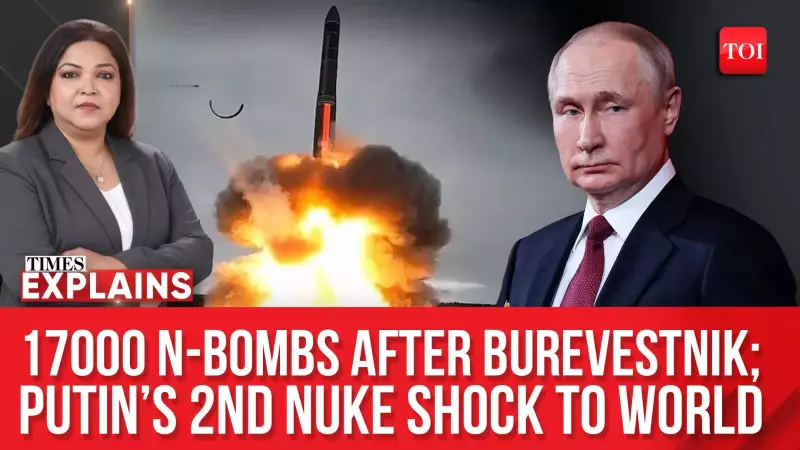
In a move that has sent shockwaves through international diplomatic circles, Russian President Vladimir Putin has taken another aggressive step in nuclear diplomacy by terminating a crucial plutonium agreement with former US President Donald Trump. This decisive action comes hot on the heels of Russia's successful testing of the advanced Burevestnik nuclear-powered cruise missile.
The Burevestnik Breakthrough
The timing of this diplomatic rupture is particularly significant, occurring immediately after Russia confirmed the successful test of its state-of-the-art Burevestnik missile. Military analysts describe this weapon system as a "game-changer" in nuclear capabilities, with its nuclear propulsion giving it potentially unlimited range.
What the Plutonium Pact Demise Means
The abandoned agreement, originally designed to control and limit weapons-grade plutonium production, represented one of the last remaining nuclear arms control measures between the two superpowers. Its termination marks a serious deterioration in US-Russia nuclear cooperation and raises alarming questions about the future of global arms control.
Expert Analysis: The Global Fallout
Nuclear proliferation experts express deep concern about the implications of this development. "We're witnessing the systematic dismantling of the nuclear arms control architecture that has maintained global stability for decades," explains Dr. Arjun Mehta, senior fellow at the Delhi Policy Group. "The combination of new weapons testing and treaty cancellations creates a perfect storm for renewed nuclear competition."
What Comes Next?
The international community now faces critical questions about how to respond to Russia's latest moves. Key concerns include:
- Potential for renewed nuclear testing
- Arms race implications with other nuclear powers
- Impact on global non-proliferation efforts
- Security implications for Europe and Asia
As world leaders scramble to assess the situation, the cancellation of this agreement represents another worrying chapter in the escalating tensions between nuclear powers, with implications that could reshape global security dynamics for years to come.





